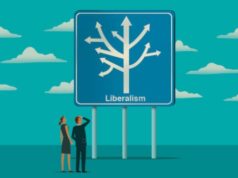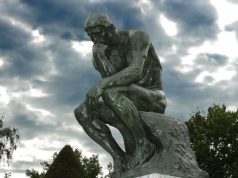The public perception of libertarians and socialists can be embodied in a few stereotypes. Socialism today could be represented by Che, Barrack Obama, Dylan, or for a more general label, by ‘someone fighting for human equality’. The Libertarian stereotype for most might be the ‘money grubbing capitalist’ or the ‘white-trash-racist-money- grubbing- republican’. This essay will deal with an understanding of such stereotypes.
For the last decade libertarianism has been on the losing end of the image war with socialism. The closest libertarians came to dominating was their condemnation of socialism as a state based tyranny represented by Stalin, Mussolini, and Hitler. This image held considerable influence in the public mind during the cold war era. But this isn’t effective anymore; firstly because terrorism seems to be a far greater evil, so one perceived image has overpowered another also and because of the economic downturn, which has further strengthened the ‘libertarians are money grubbing capitalists’ image.
Stereotypes can be powerful in the realm of popular culture and public opinion. And the arts tend to reflect this; look at Hollywood, movies in general or at literature. How many novels have you read which embrace a libertarian ideal; apart from Ayn Rand and Heinlein? And with socialists the list of novels, poems, movies and paintings are innumerable. I believe that this is because art in itself has a tendency of focusing on sorrow and the subjugated, and no ideology spotlights those facets of humanity better than socialism.
And keeping this in mind, I would like to point out that libertarianism fails most drastically with regard to altruism. Hayek for example says that altruism cannot be handed out by state., Individuals can only be directly altruistic to people they know personally and large scale altruism must result from the profit motive. So when every human being works for himself it results in an order that ensures that everyone is given a fair chance. That may be fine theoretically, but it isn’t a very appealing idea, for someone who is financially or socially underprivileged.
When we leave altruism and the empowerment of the lower classes to a ‘spontaneous order’, it might work, but it seems like the ideology doesn’t care, and people, who are naturally designed to view themselves as subjugated, will repudiate this idea as being heartless. Socialism on the other hand recognizes human suffering, recognizes the fact that class exists.
An example of the class divide argument is a speech given by Margaret Thatcher to the British Parliament where she indicates that though class divide exists because of capitalism, it means that people live at a higher level. Compare the ‘poor’ in America to the ‘poor’ in India and you’ll understand her point. But the hidden assumption behind her message is that class will always exist. And thus ‘lower class’ human beings, will always want something that says that this difference of classes is unnatural (created by money grubbing capitalists) and must be destroyed.
Perhaps one could conjecture that one person being above and another being below is the natural product of human competition, human beings who are more talented and more adapted to society, will be more successful. This is based on the assumption that human beings are not born equal.
But at the end of the day an idea like the equality of human beings, is artistically and socially a more digestible idea. Take anything: gay rights, women’s rights, poverty, racism; the libertarian ideal just says ‘you do what you want to’, but socialism says ‘If we fight the rich shall go down and the poor shall rejoice.’
In this sense socialism seems to appeals to a person’s weaker self, to his belief in his own subjugation and to his need for forced equality. It also creates an artificial sense of karma or justice, a kind of ‘revenge of the subjugated people’ which is an immensely appealing idea to most humans. It means they can trust their lives onto some external force that give them their rights.
Clearly, if libertarian thought is to be more appealing, it has to have a little more to say about altruism.
But let’s leave that alone for now. Let’s look at what the liberal ideal does have. Libertarianism looks at human beings as being capable of competition, as being self-dependent and it celebrates the current state of humanity. This to me is a believably optimistic stand point. Libertarianism is meant to appeal to an individual’s belief in his own talents rather than to his convictions about what has been denied to him. And yet few writers have lauded this or written about it. And the few that have have been too extreme or simplistic. Consider Ayn Rand’s utopist novels or Heinlein’s science fiction, both of them present libertarianism in an unreal world. Where a novel like that can impress, it cannot move a human being. It lacks emotion.
Socialism will always be a more appealing message to all those that believe that they deserve to get more out of life. And until liberal thinkers include a touch of compassion or an explication of self-empowerment in their discourse, their talk and logic and rationality will pale in comparison to Socialist rhetoric.
A bit ironic isn’t it; socialists have beaten libertarians at marketing.
Post Disclaimer
The opinions expressed in this essay are those of the authors. They do not purport to reflect the opinions or views of CCS.





